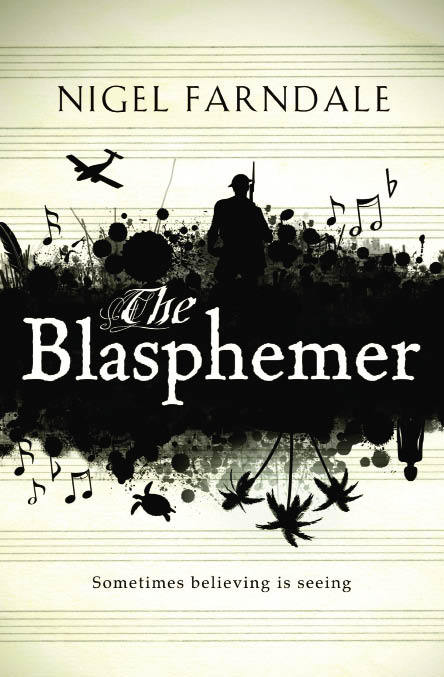Nobody who reads Nigel Farndale’s The Blasphemer is likely to complain about being short-changed.
Nobody who reads Nigel Farndale’s The Blasphemer is likely to complain about being short-changed. It tackles five generations of the same family, three wars, Mahler’s ninth symphony and contemporary Islamic terrorism. Along the way, it ponders the nature of male courage, the theological implications of Darwinism and, rather more surprisingly, the existence of angels.
As a journalist himself, Farndale also seems to have noted the career path of Sebastian Faulks — that great exemplar for all British journos dreaming of literary glory. Like Birdsong, The Blasphemer depicts a soldier’s affair with an older French woman who dies in the post-war flu epidemic, but not before having a child whose identity gradually becomes clear to his descendents.
The main character, though, is Daniel Kennedy, a present-day academic zoologist and true Dawkins non-believer. When the novel begins, Daniel is heading to the Galapagos Islands with his long-time partner Nancy where he plans to propose at last. But when their sea-plane crashes, Daniel shoves her out of the way to escape from the half-submerged wreckage. From then on, he’s tormented by a conviction of his own cowardice — which, as the son, grandson and great-grandson of war heroes, he feels more keenly than most.
Worse still for an atheist, he fears he was saved from death by an angelic vision. This problem he discusses at some length with a neatly-choreographed range of friends and colleagues — from a Muslim teacher to a string theorist, a gay doctor to a Catholic musician who, somewhat joltingly, turns out to be one of the most luridly villainous hypocrites outside a Dickens novel. Meanwhile, in Ypres in 1917, we discover that Daniel’s great-grandfather wasn’t all he seemed either…
The novel, in fact, is at its best once these many plates have been set spinning, and the story-telling takes on a genuine sweep. Farndale possibly overdoes the cliff-hangers whenever he moves from one strand to another. Nonetheless, he does pull off the necessary trick of making every strand something we want to return to. He’s good, too, at creating parallels between the various storylines without smashing us over the head with them.
Where The Blasphemer proves less successful is in integrating those more abstract ponderings. Most obviously, in what perhaps is an over-kindly book, Daniel’s act of cowardice isn’t cowardly enough. His shoving aside of Nancy is supposed to provide the novel’s moral crux. Yet after he gets to the surface, he immediately goes back to rescue her and several other passengers, before swimming the 10 miles to shore to get help — which surely makes his later remorse a little excessive. As for God versus Darwin, this largely consists of Daniel and his pals swapping their familiar debating points.
The same patchiness applies to the writing. The breadth of the material is balanced by sharp individual insights, especially into family life. On the other hand, the weakness for cliché (‘companionable silence’, ‘searing pain’) can infect entire scenes. These include some from the first world war, where the descriptions of trench life studiously tick off all the traditional signifiers — rats, Woodbines, sodden puttees — without achieving the admittedly tricky feat of seeming to imagine them afresh.
The result is still a perfectly respectable piece of work. (If this were a first novel it would definitely qualify as ‘promising’.) Even so, the feeling persists that Farndale has scrupulously gathered all the elements required for a good, solid, pacy-but-intelligent read, yet has never quite managed to fuse them together. If I remember my O level chemistry right, this makes The Blasphemer a mixture rather than a compound — and as such not totally satisfying.






Comments